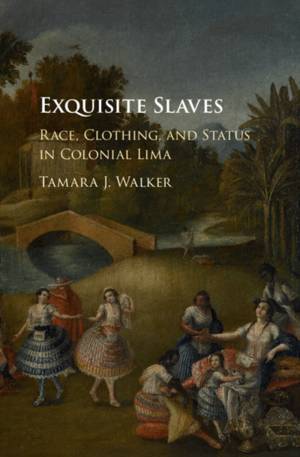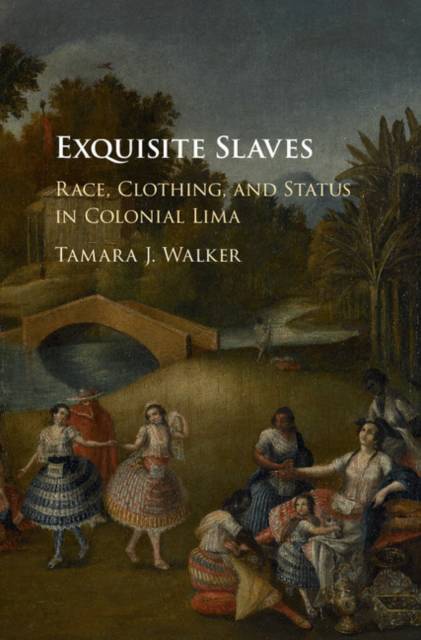
- Afhalen na 1 uur in een winkel met voorraad
- Gratis thuislevering in België vanaf € 30
- Ruim aanbod met 7 miljoen producten
- Afhalen na 1 uur in een winkel met voorraad
- Gratis thuislevering in België vanaf € 30
- Ruim aanbod met 7 miljoen producten
Zoeken
€ 172,95
+ 345 punten
Uitvoering
Omschrijving
In Exquisite Slaves, Tamara J. Walker examines how slaves used elegant clothing as a language for expressing attitudes about gender and status in the wealthy urban center of eighteenth- and nineteenth-century Lima, Peru. Drawing on traditional historical research methods, visual studies, feminist theory, and material culture scholarship, Walker argues that clothing was an emblem of not only the reach but also the limits of slaveholders' power and racial domination. Even as it acknowledges the significant limits imposed on slaves' access to elegant clothing, Exquisite Slaves also showcases the insistence and ingenuity with which slaves dressed to convey their own sense of humanity and dignity. Building on other scholars' work on slaves' agency and subjectivity in examining how they made use of myriad legal discourses and forums, Exquisite Slaves argues for the importance of understanding the body itself as a site of claims-making.
Specificaties
Betrokkenen
- Auteur(s):
- Uitgeverij:
Inhoud
- Aantal bladzijden:
- 240
- Taal:
- Engels
Eigenschappen
- Productcode (EAN):
- 9781107084032
- Verschijningsdatum:
- 3/07/2017
- Uitvoering:
- Hardcover
- Formaat:
- Genaaid
- Afmetingen:
- 165 mm x 239 mm
- Gewicht:
- 526 g

Alleen bij Standaard Boekhandel
+ 345 punten op je klantenkaart van Standaard Boekhandel
Beoordelingen
We publiceren alleen reviews die voldoen aan de voorwaarden voor reviews. Bekijk onze voorwaarden voor reviews.











